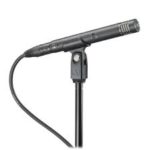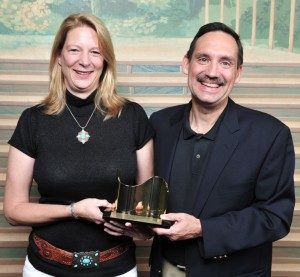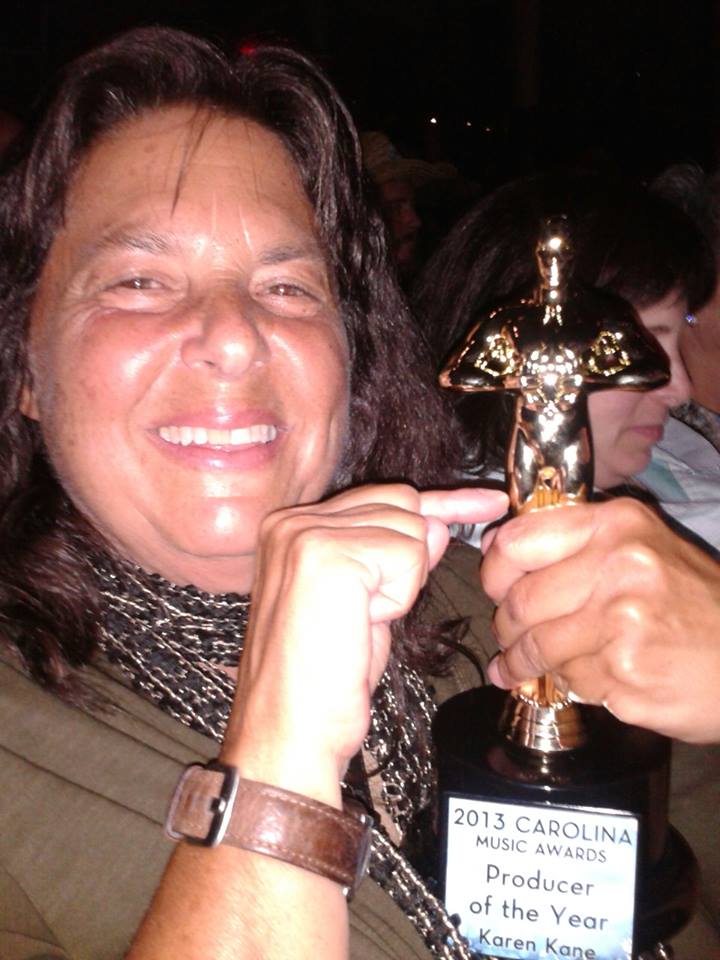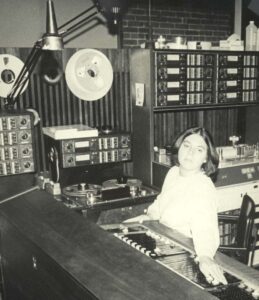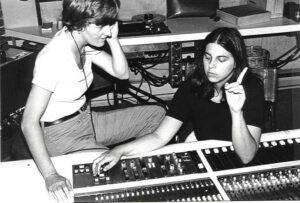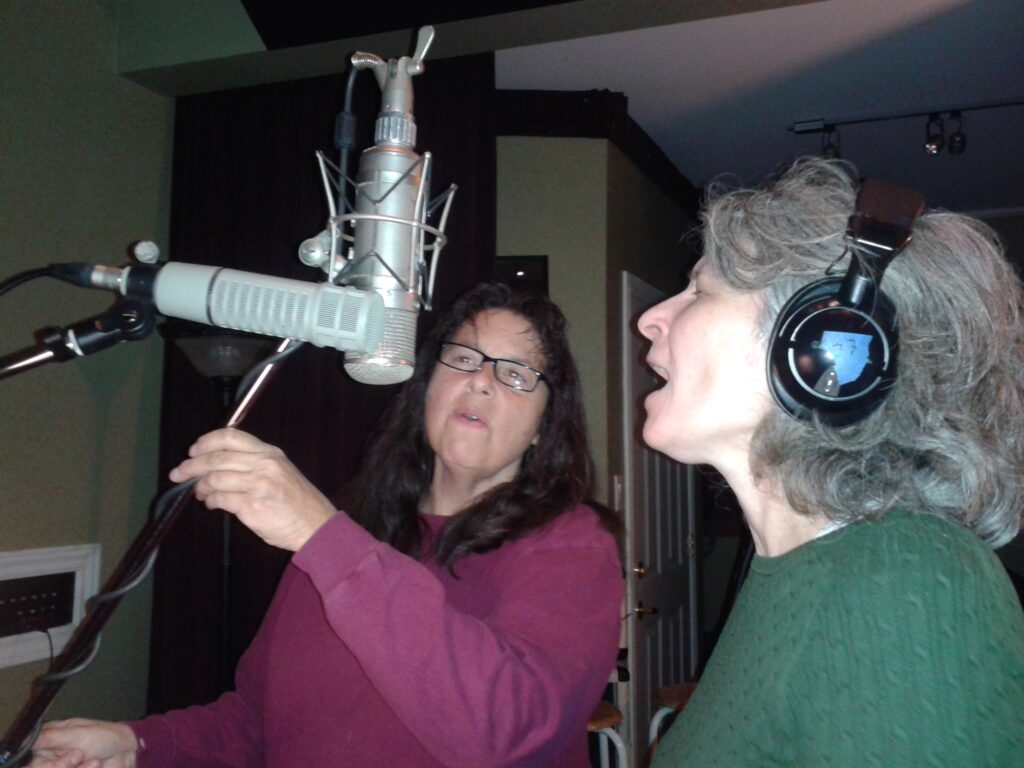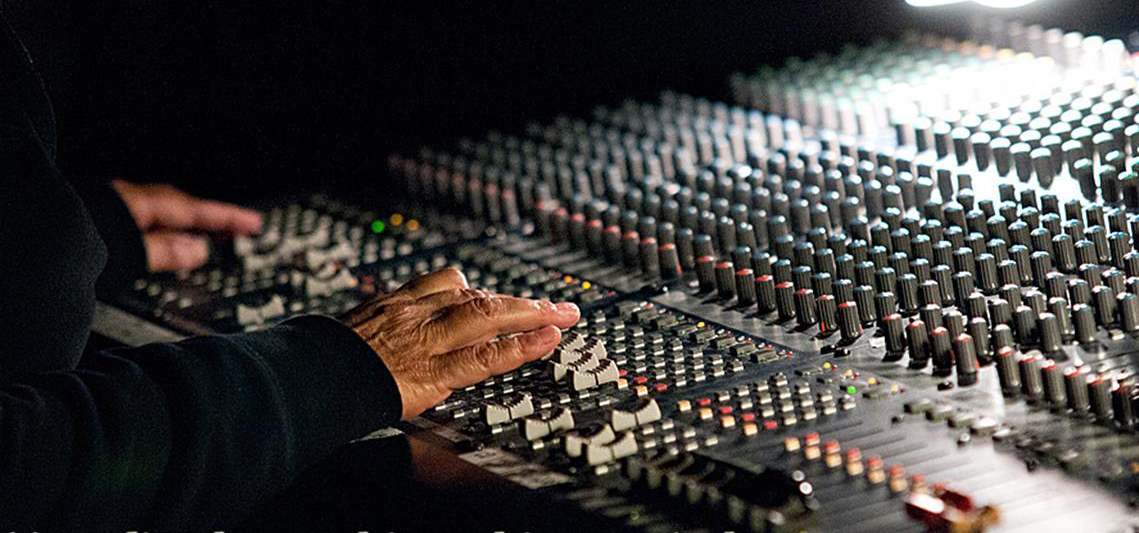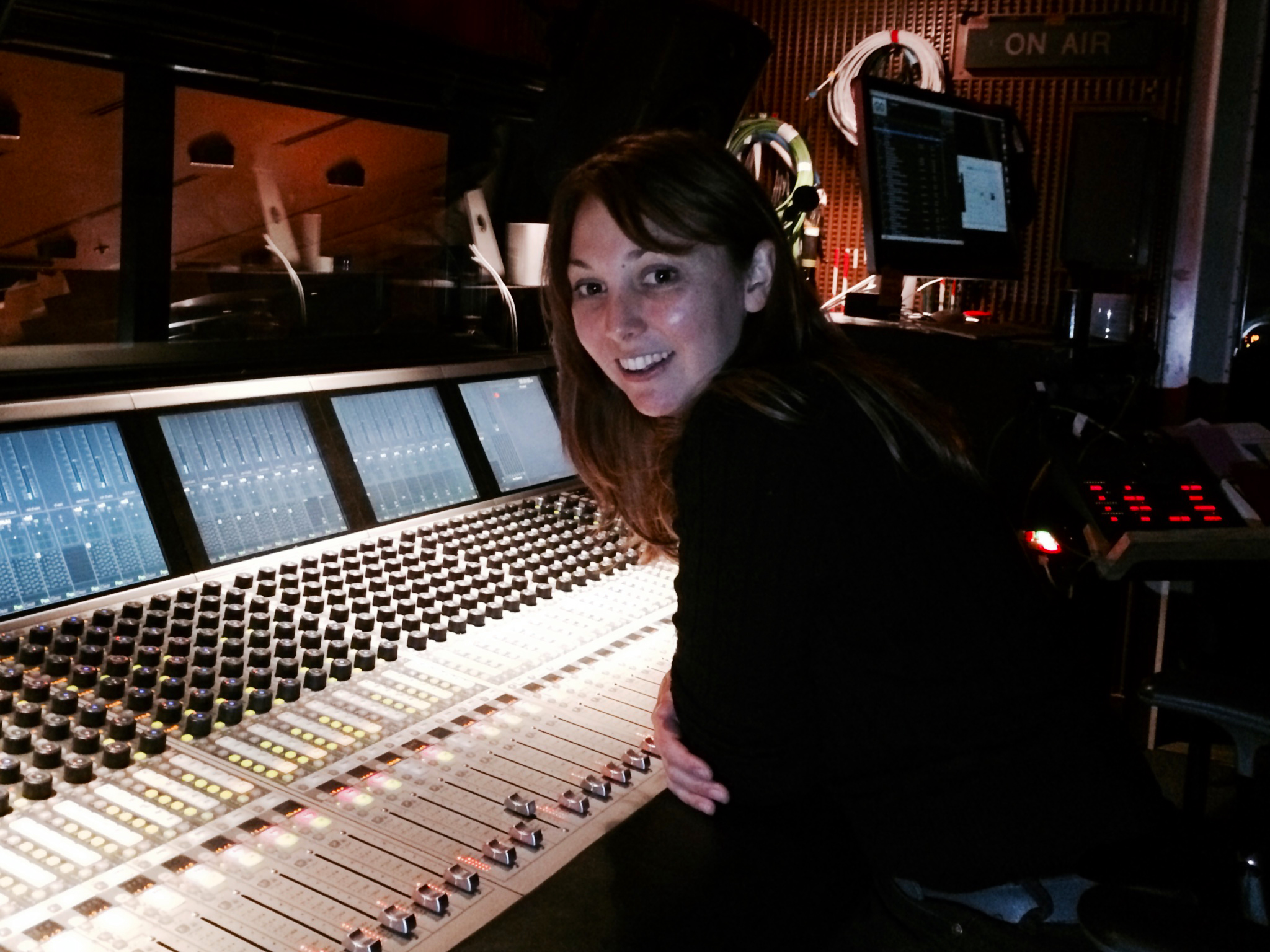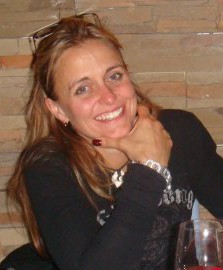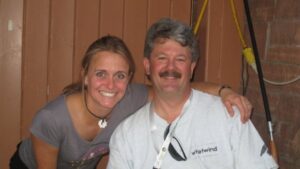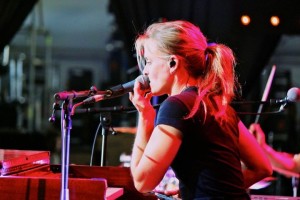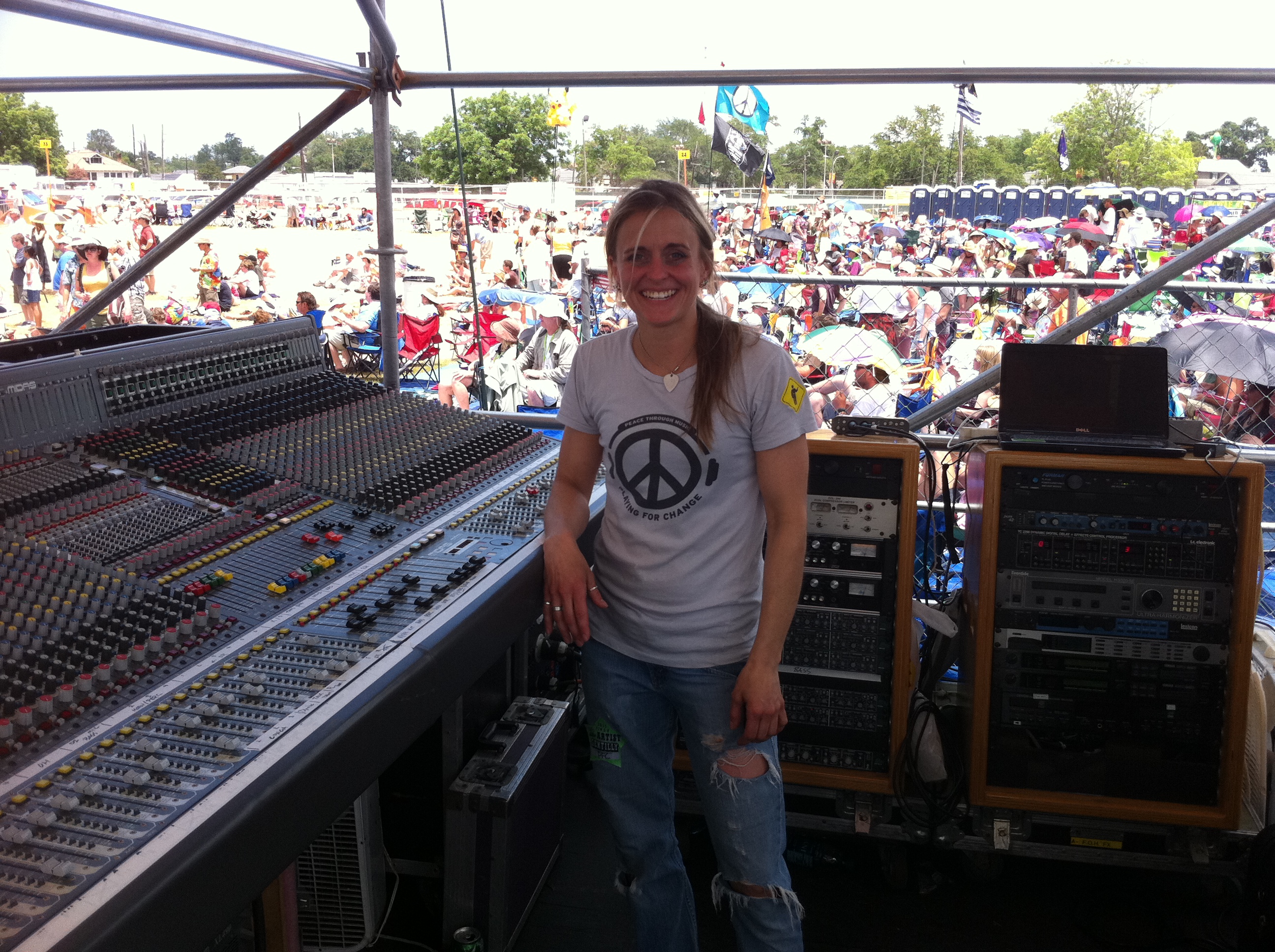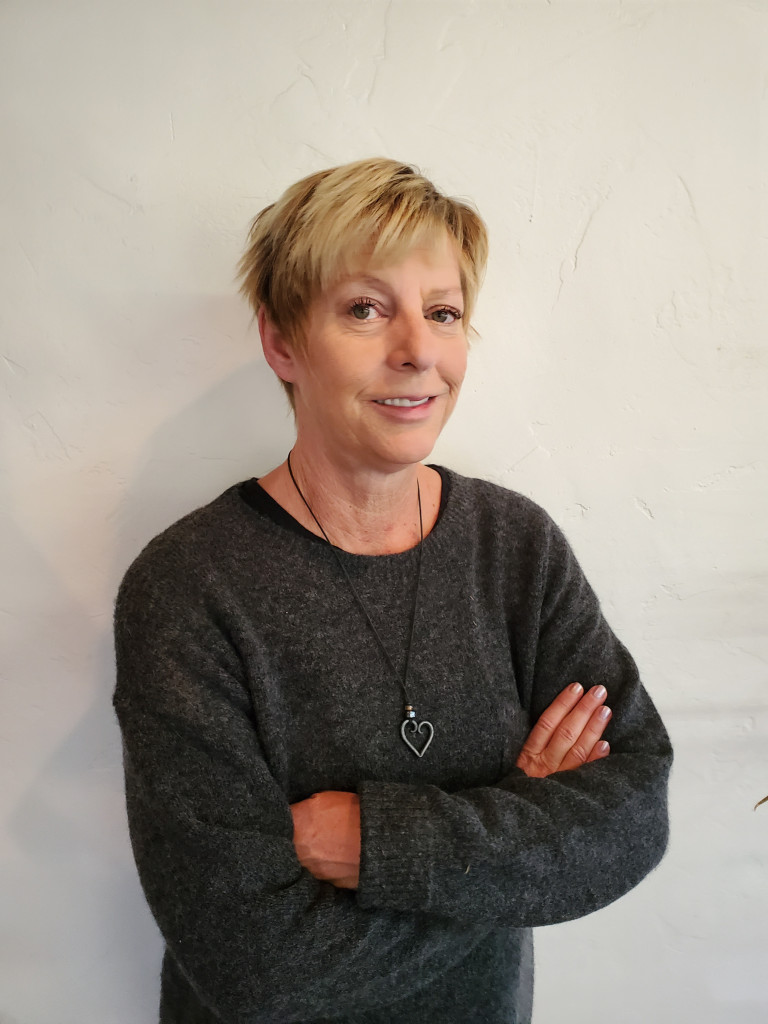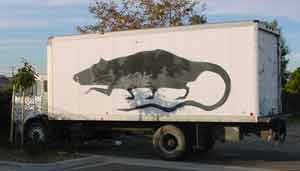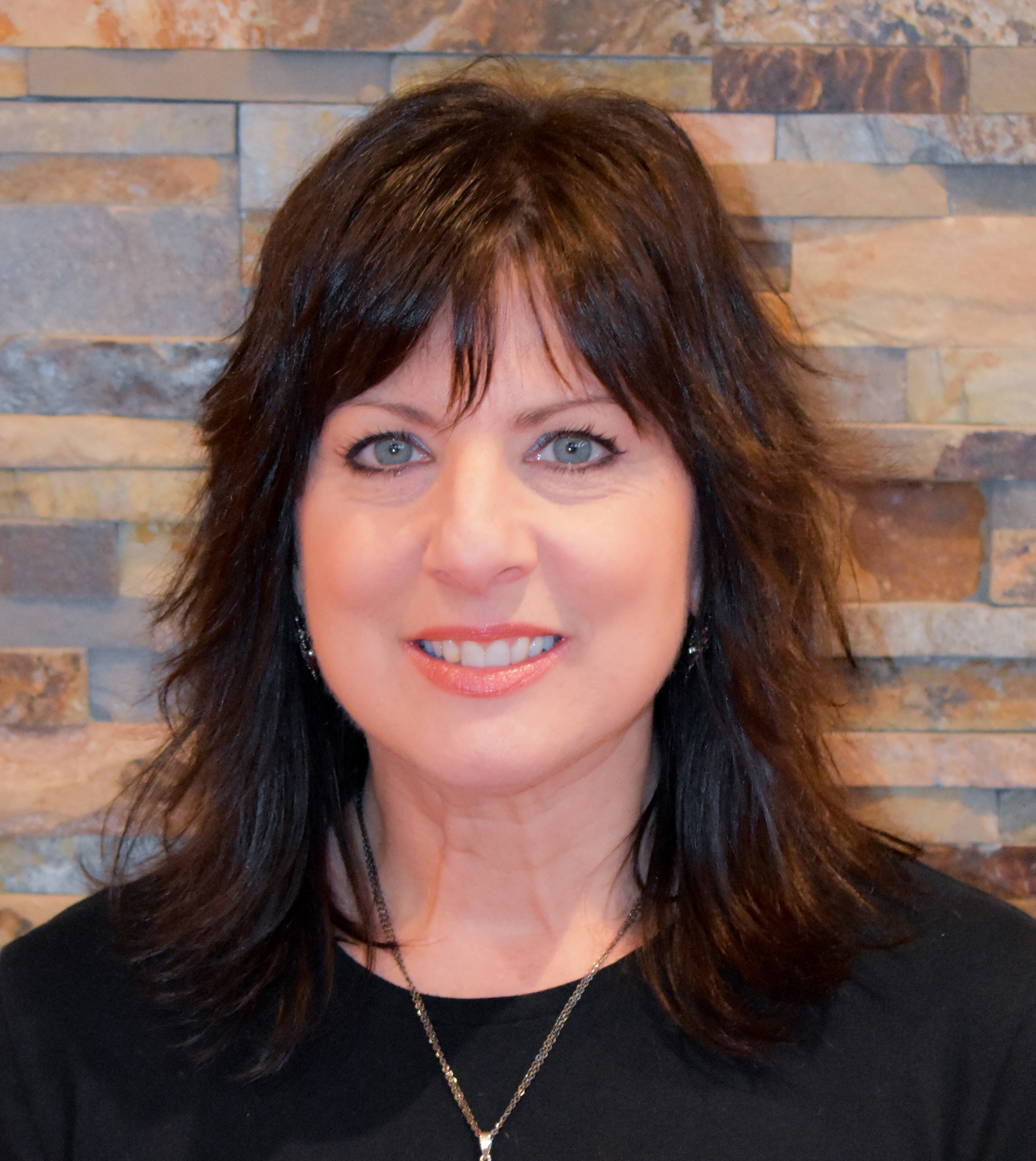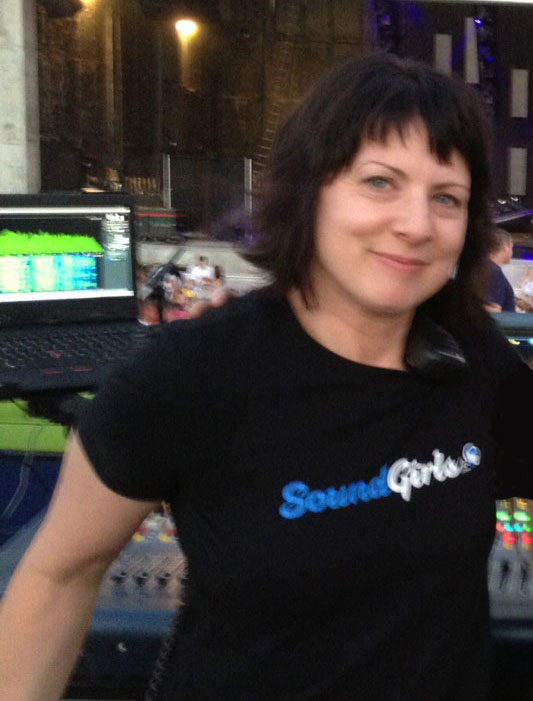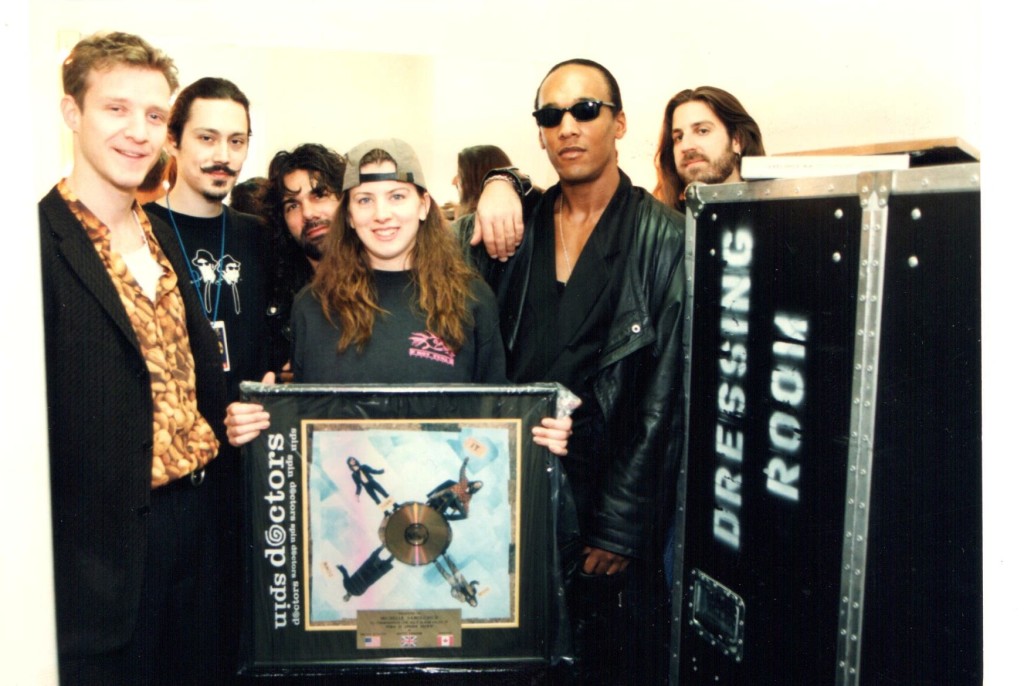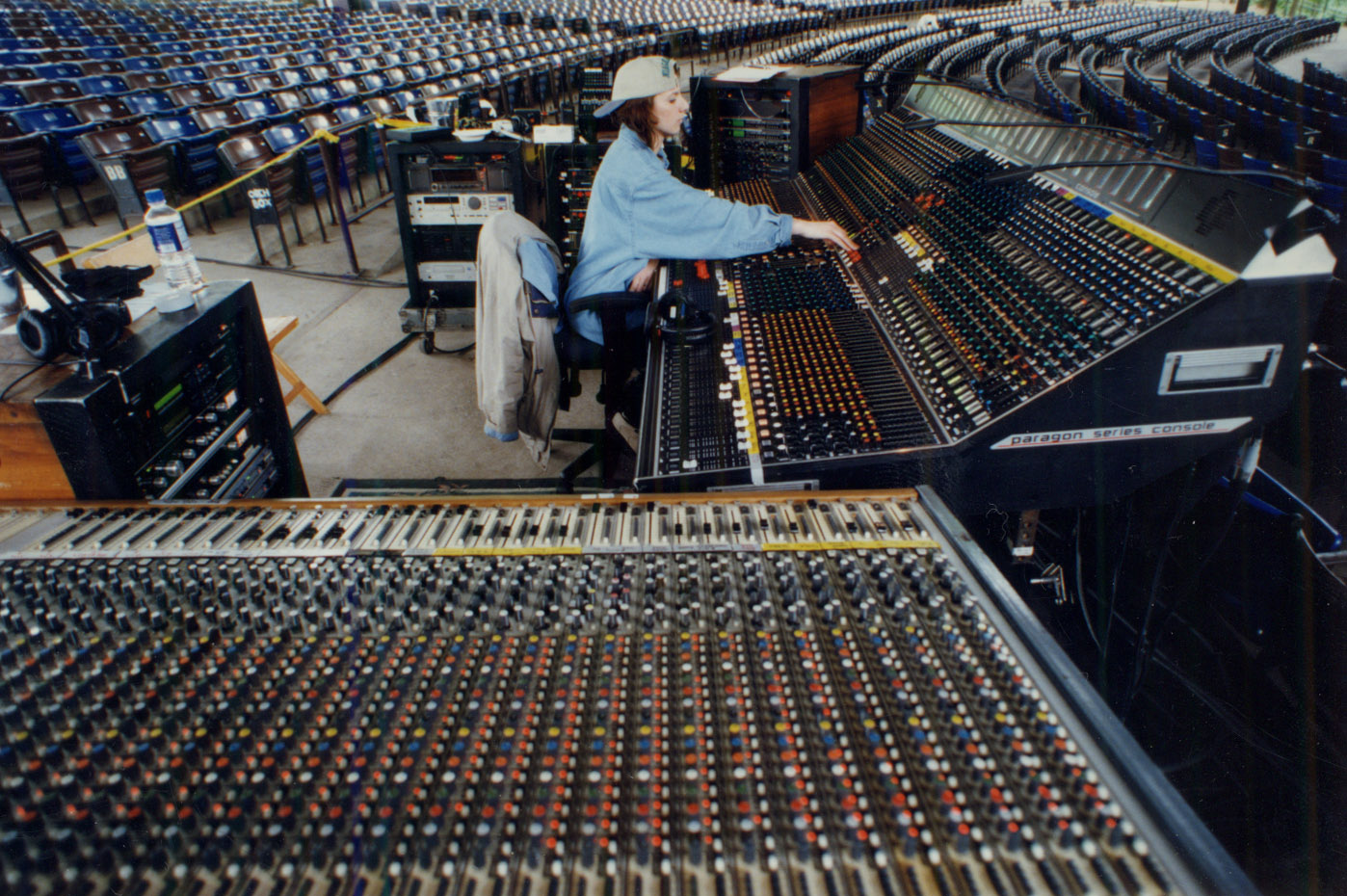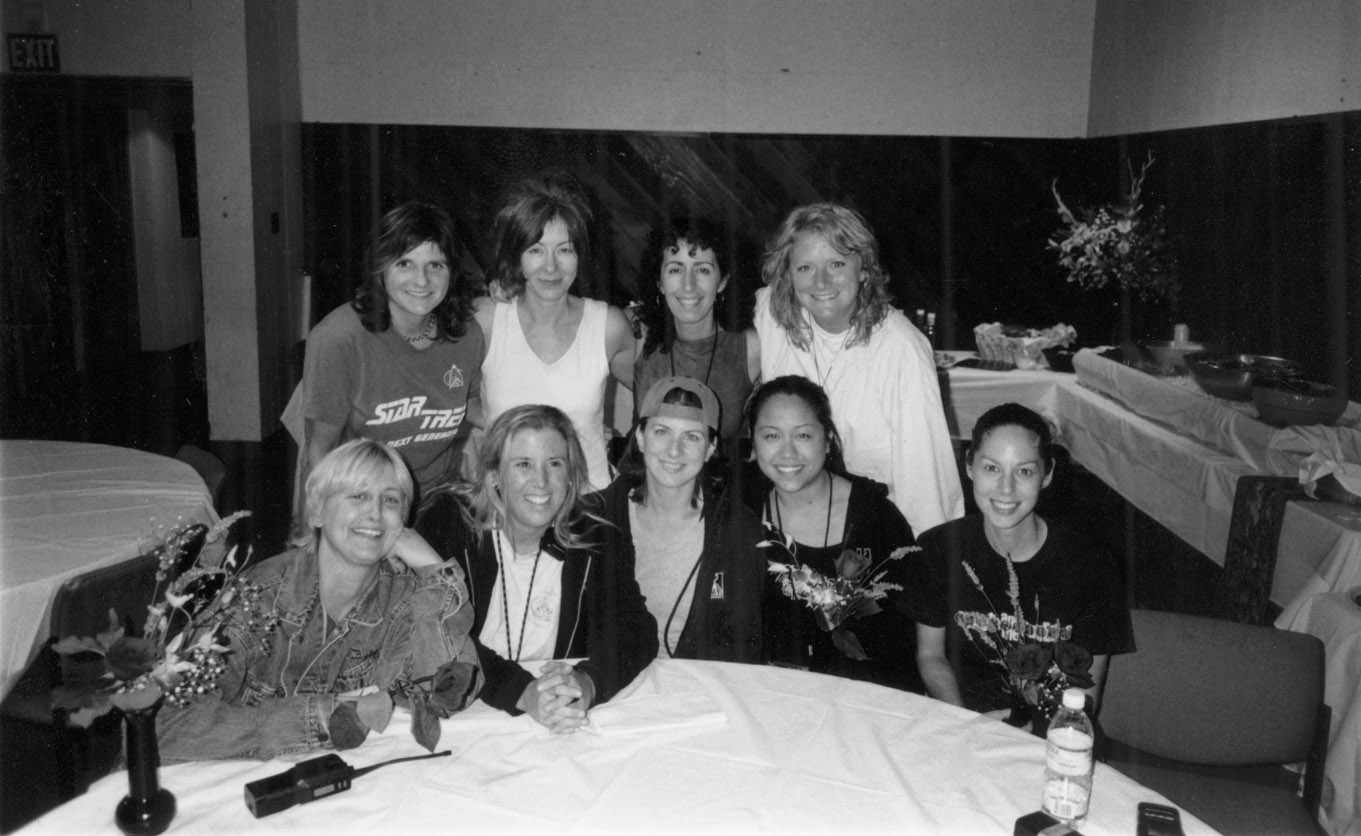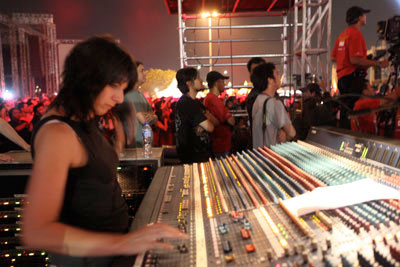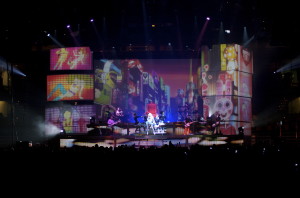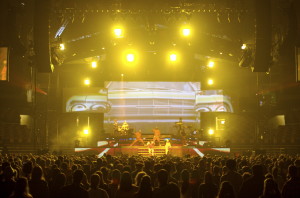
SJackie Green of Audio Technica
Jackie Green is Vice President of R&D/Engineering at Audio Technica. She’s been involved in the development of several of ATs innovative products and technologies. Jackie also holds patents on key digital and wireless work.
I understand that you played a whole variety of instruments as a child and you also had a love for science. Your interest in electronics and science started at a young age. They don’t teach much about electronics in elementary or high school, so how did you go about learning about circuits and figuring out how to fix equipment?
“I was always building things, even as a young child. We lived in the country and I didn’t have other kids to play with. I spent my time building dams in the creek and boats to try and float and sail without tipping. My father noticed I liked building things and when I was in the 2nd grade, he gave me a small crystal radio kit to build. I was fascinated by how something so simple could make music! That simple project made me curious, so I began to take apart other electronic devices in our home. I discovered that everything was made of the same simple parts. Of course, often upon disassembling things, I broke them. So necessity dictated that I learn how to fix things too. Later on, I built an electric bass and played it through my parent’s stereo. Obviously, that was always breaking – so I then really needed to learn about speakers, vibration, power levels, distortion, as well as circuits. I didn’t actually realize what I was learning about at the time – just that there were various complex interactions that either allowed me to play my bass or didn’t. “
What pushed you to get into product research and development rather than something like performing, recording engineering, or mixing?
“I didn’t ever intend to stop performing music, but I recognized that it would not be a great source of income or stability. So, my plans turned to other careers with a plan of finding an orchestra to play in once I “retired” from real work. I did initially think I’d go into recording or mixing (well, after I decided not to go to vet school – which was my first career choice). I loved finding creative ways to capture the sound I was hearing. I also loved it when all my tracks blended together and then popped into that special place where I know it “feels” just right. But, in the studio, the equipment was always breaking. My lifelong experience led me to dive in and put things right. Many times when I was fixing or re-arranging something I would think that there really was a better way to design it. It wasn’t long until I took up more physics, electronics and digital classes in order to find ways to make things better. And now, here I am 30 years later and I’m still doing that!”
You stared at AT in computer programming, how did you make the transition to R & D, and what spurred you to move to the field?
“When I started at AT, they were a consumer company that mainly distributed phonograph cartridges. They also had some consumer loudspeakers and headphones products. I was attracted by the music reproduction technology and needed a job while I was getting my masters in management. The job they had available was writing programs to analyze market research data, so that’s what I did. Once my masters were finished, I began to work here full time. That’s when we started to develop the pro audio side of the products. R&D was a natural fit because we were starting from ground zero on the professional side of things. I was inspired by the opportunity to research and create solutions on a clean canvas with no preconceived barriers.”
What was the first product you worked on at AT?
“It’s hard to remember what really came first. I worked on consumer loudspeakers and headphones, but on the pro side, I think the first would have been the AT4049, AT4051, AT4053 modular transformerless condenser microphones.”
- AT 4053
- AT 4051
When you are developing a product, is there a moment when you know you’ve nailed it or do you just get to a point where you’ve decided it’s finished? In other words how do you know when to say when?
“I’ve failed if I haven’t gotten to the “nailed it” stage. Of course, there have been times in my career when for whatever reasons we’ve just had to move on, but gosh that’s hard. I do what I do in order to create a product that when I use it gives me a certain “feeling” that is hard to describe. It’s kind of a synergistic harmony when you know that everything is working together and no part of the sound or function is working against another part. It’s hard to describe – but when you know it’s right, you know you’ve nailed it and it’s done. I find that working past that stage, or second guessing yourself will usually result in a lesser product.”
What was one of the most interesting or exciting projects you’ve worked on, and do you have a favorite?
“One of the most interesting was developing a time-domain measurement that allowed us to look at how a microphone keeps responding after the initial transient. The activity that happens over time is essential to the actual sound quality of the microphone, and creating something that lets me see this was awesome! As for “favorite” – it really tends to be whatever I’m working on at the moment because it’s the process and discovery that are the most fun as opposed to the specific product.”
Do you find that most products come from a desire to improve an existing product or out of a need for something completely different?
“Most of my ideas or goals for a product come from a desire to create something new and better as a tool for the acquisition or playback of great sound, so there is always a “need.” Whether I need to improve something existing or create something new depends on the problem that I’m trying to solve. I do have one weakness, though. If someone says “that can’t be done,” then I am strongly inclined to try and do it.”
What is the best part of your job and what is the most difficult?
“The best part is the ability to pursue my creative curiosity. The most difficult is convincing others to follow when I want to do something that no one else has done before.”
There are so few women in professional audio, I can only imagine there are even fewer who do what you do. Have you met with many obstacles or much sexism? If so, how have you handled it?
“Of course I have met with obstacles and sexism, but I generally don’t even realize it until afterward. I was raised to not accept any excuse or obstacle because of who I am or where I came from. That is so ingrained, I can’t even imagine accepting a limit or filter. I must credit my family for this. On top of that internal compass, I’m an engineer. I like to make decisions based upon good and complete data. When others judge me without good and complete data (such as based only upon gender) I find it more frustrating to be dismissed because they are using bad data than because they are being discriminatory. I can’t change who I am or who others are – but I can try to influence them to use good/complete data.“
What advice do you have for young women and girls who are interested in science but intimidated by it?
“If you are interested in science, then ask yourself why you are interested. Ask yourself if there is anything that would be really fun to try or know more about. Then ask yourself – so why wouldn’t I want to try it? The “why nots” will tell you what you need to do to stop feeling intimidated – or even embarrassed – to have this interest. Since girls are actually very creative and intuitive, science is a fantastic field for them. I don’t think the intimidation comes from the actual area of science, it comes from concern about how they will fit in. Luckily today, there are lots of clubs, social networks, and activities for girls and young women to experience connections with others who also feel this curiosity. Stand up for yourself and get involved. Find a teacher or a woman professional and talk to them about what you can do. I’m pretty sure you’ll find a world of support once you look!”
What are the most useful skills for someone interested in this career?
“Creativity, knowledge of acoustics and physics, and very importantly, a solid adherence to the scientific method. You can really fool yourself and go down the wrong path if you are not careful about the process. This is one of the biggest mistakes I see engineers making (both male and female). Make a plan, identify your controls, make only one change at a time, check your work many times and carefully record and consider all your results before jumping to conclusions. Stay your course. Also, in this field knowledge of, or love of music also helps.”
Can you tell us about a current project you are working on?
“Currently I’m very busy working on alternate transmission and reception methods for wireless microphones. There are some very difficult challenges that exist with today’s very hostile and shrinking RF spectrum. I’m looking for ways to provide the same high-quality professional audio sound and reliability that exists when using a wired microphone in a wireless device. We are truly finding ways to do “more with less” – and I refuse to sacrifice the sound to do it.”
Is there anything else you would like to add?
“Let’s talk about math. I think math scares off many potentially great engineers (both genders). I personally don’t feel we are teaching math correctly in school these days. There is too much focus on “finding the right answers over and over” and not enough focus on the real reasons why we use math. Don’t give up on engineering if you aren’t doing well in math in school. We have computers to do those calculations. You need to know what is possible to do, and you need to know what type of math “tool” is available to help you get to your goal, and that’s it. Maybe this will be the one thing you have to get extra help with during school – but please don’t let this stop you. Einstein was terrible at math, right? Or was he just having trouble with how math was done in school? If you are an “engineer” you will find a way to get around this obstacle.”
*Microphone images courtesy of Audio Technica
